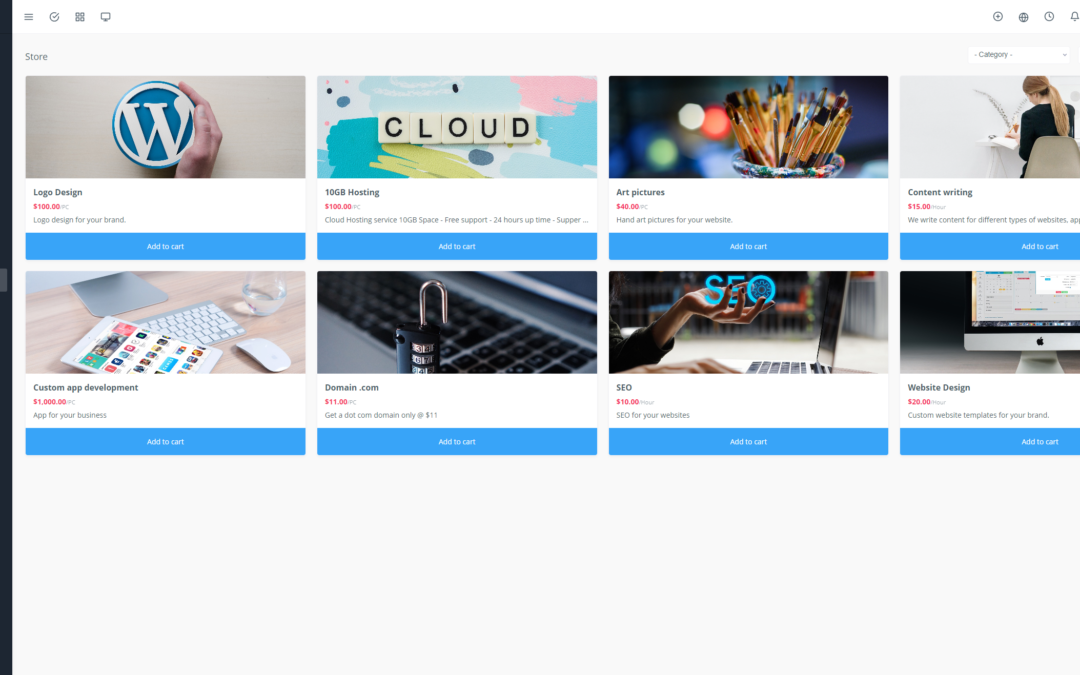The SaaS CRM market is booming, and it’s not slowing down! 💥 Businesses of all sizes are adopting cloud-based CRM solutions to effectively manage their customer relationships and optimize their performance.
Here are the main trends shaping the SaaS CRM landscape and offering incredible opportunities for businesses:
1. Exponential Market Growth:
The SaaS CRM market is experiencing dramatic growth, fueled by the increasing adoption of cloud computing and the need for businesses to manage their customer interactions more strategically. 📈 Estimates suggest the market will reach https://app.yoneos.com/signup by https://app.yoneos.com/signup.
2. Massive Cloud Adoption:
Cloud computing has become essential for businesses, offering unparalleled flexibility, scalability, and accessibility. ☁️ SaaS CRM solutions take full advantage of the cloud, allowing businesses to focus on their business needs rather than managing complex infrastructure.
3. Artificial Intelligence and Machine Learning: Valuable Assets:
AI and machine learning are revolutionizing customer relationship management. 🤖 These technologies enable SaaS CRMs to:
Analyze customer data in real-time: Identify customer trends, needs, and preferences.
Personalize interactions: Provide more relevant and engaging customer experiences.
Automate repetitive tasks: Free up sales and marketing teams to focus on higher-value activities.
4. Business Process Automation:
SaaS CRMs enable automation of many tasks, including:
Lead tracking: Simplify prospect qualification processes and improve sales team efficiency.
Marketing campaign management: Personalize messages and optimize campaigns to maximize return on investment.
Customer service: Quickly respond to requests and efficiently resolve issues.
5. Customer Experience Personalization:
Today’s customers expect personalized and unique experiences. 🤝 SaaS CRMs provide the tools to:
Segment customers: Identify groups of customers with specific needs.
Personalize messages: Tailor communications to each customer’s preferences.
Offer personalized experiences: Create customer journeys tailored to individual needs.
6. Mobile CRM Adoption:
Accessing customer data and CRM features from a smartphone or tablet has become crucial. 📱 Mobile SaaS CRM solutions enable sales, marketing, and customer service teams to stay connected and respond to customer requests wherever they are.
7. Predictive Analytics and Data Intelligence:
SaaS CRMs incorporate predictive analytics and data intelligence capabilities to help businesses:
Predict customer behavior: Identify at-risk customers or those likely to make a purchase.
Optimize marketing campaigns: Identify the most effective channels and messages.
Improve customer service: Anticipate customer needs and resolve issues before they arise.
8. Social Media Integration:
SaaS CRMs integrate with social media to allow businesses to:
Monitor conversations: Understand customer opinions about their products and services.
Engage with customers: Respond to comments, questions, and complaints.
Launch marketing campaigns: Reach a wider audience and generate leads.
9. Omnichannel Integration:
Customers interact with businesses through various channels: websites, mobile apps, social networks, email, phone, etc. 🌐 Omnichannel SaaS CRMs allow:
Unifying customer data: Gain a comprehensive view of each customer’s interaction history.
Personalize experiences: Provide a consistent experience across all channels.
Improve efficiency: Streamline processes and reduce response times.
10. Subscription-Based CRM Solutions:
Subscription models have become the standard in the SaaS CRM industry. 💰 Businesses can access the latest features and updates without investing in expensive software.
11. Focus on Customer Engagement:
Business success depends on the ability to retain customers. 💖 SaaS CRMs emphasize customer engagement, allowing businesses to:
Create loyalty programs: Reward loyal customers and build loyalty.
Personalize interactions: Provide memorable experiences and build lasting relationships.
12. Increased Customer Data:
Businesses are dealing with an increasing amount of customer data. 📊 SaaS CRMs help manage, analyze, and leverage this data to improve decision-making and customer experience.
13. Importance of Data Security:
Data security is a top priority for businesses. 🔒 SaaS CRM solutions must offer robust security measures to protect sensitive customer information.
14. Industry-Specific CRM Solutions:
The SaaS CRM market has specialized, offering solutions tailored to the specific needs of different industries, such as finance, healthcare, retail, etc. 🏢 Businesses can choose a solution that perfectly meets their requirements.
15. Mergers and Acquisitions in the CRM Sector:
The SaaS CRM sector is constantly evolving, with frequent mergers and acquisitions. 🤝 These movements consolidate the market and offer businesses a wider variety of options.
16. Importance of Collaboration and Integration:
SaaS CRMs must seamlessly integrate with other business applications, such as marketing automation platforms, project management tools, etc. 🤝 Collaboration and integration are essential to improve efficiency and optimize processes.
17. API-Based CRM Solutions:
APIs (Application Programming Interfaces) allow SaaS CRMs to easily integrate with other applications and services. 💻 API-based solutions offer increased flexibility and facilitate the development of custom applications.
18. Blockchain Technology Adoption:
Blockchain technology is revolutionizing the CRM sector by enabling:
Enhanced data security: Create an immutable and transparent transaction record.
Simplified identity management: Simplify customer information management.
Process automation:* Reduce costs and lead times.
19. Focus on User Experience:
SaaS CRMs must offer an intuitive and user-friendly experience so that employees can easily use them. 🧑💻 A clear user interface, easy-to-use features, and effective support are essential.
20. Commitment to Sustainability:
Businesses are increasingly committed to sustainability principles. 🌎 SaaS CRM solutions contribute to reducing carbon footprint by eliminating the need for physical software and enabling remote work.
In conclusion, the SaaS CRM market offers a wide range of opportunities for businesses of all sizes.
By adopting the right strategies and leveraging the latest trends, businesses can maximize their return on investment, improve customer satisfaction, and gain a competitive advantage. 🚀

